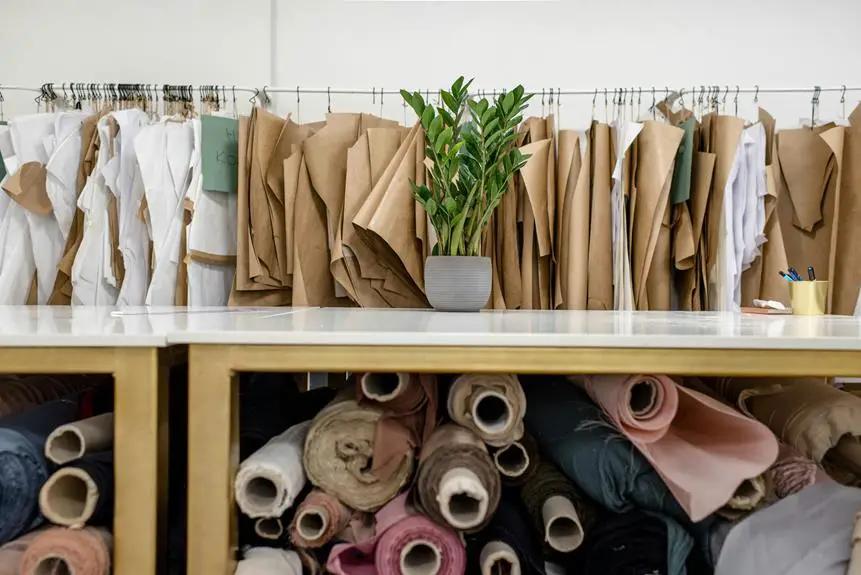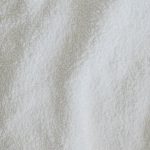When you consider the impact of your clothing choices, Oxford fabric emerges as a compelling option in the realm of eco-friendly fashion. Its durability and breathability not only enhance the longevity of your wardrobe but also align with sustainable production practices that prioritize ethical labor and reduced environmental impact. You might be surprised to learn how this classic fabric contributes to a more responsible fashion industry. As you explore its versatility, you'll uncover how it can transform your style while supporting a greener future. What other benefits might this fabric hold for conscious consumers like you?
Table of Contents
Understanding Oxford Fabric
Oxford fabric is a versatile textile known for its durability and classic weave, making it a popular choice in both casual and formal apparel. You'll often find it used in shirts, dresses, and even lightweight jackets. The unique basketweave construction gives it a soft feel while ensuring it holds up well over time.
When you choose oxford fabric, you're not just opting for comfort; you're also enjoying a fabric that resists wrinkles and maintains its shape. This means less time spent ironing and more time enjoying your day. Plus, oxford fabric comes in a variety of colors and patterns, adding a touch of style to any wardrobe.
Another appealing aspect is its breathability, making it an excellent option for year-round wear. Whether you're dressing up for a business meeting or going for a casual outing, this fabric adapts seamlessly to various occasions.
Sustainable Production Practices
Choosing oxford fabric not only enhances your wardrobe but also opens up discussions about sustainable production practices that can reduce the environmental impact of fashion. When you opt for oxford fabric, you're often supporting manufacturers who prioritize eco-friendly processes. Many brands are shifting towards organic cotton, which uses less water and avoids harmful pesticides, ensuring a healthier planet.
You'll also find that sustainable production often involves ethical labor practices. By choosing oxford fabric from brands committed to fair wages and safe working conditions, you contribute to a more responsible fashion industry. Look for certifications like GOTS (Global Organic Textile Standard) or Fair Trade, which guarantee adherence to these standards.
Moreover, sustainable production emphasizes reducing waste. Many companies are adopting zero-waste strategies, recycling scraps, and using innovative techniques to minimize leftover materials. This not only lessens landfill contributions but also enhances the overall quality of their products.
Incorporating oxford fabric into your wardrobe means embracing these practices and supporting a more sustainable future. By making intentional choices, you'll help foster a fashion landscape that values both style and the environment.
Benefits of Eco-Friendly Fashion
Embracing eco-friendly fashion not only benefits the environment but also enhances your personal style with unique, sustainable options. When you choose eco-friendly garments, you support brands committed to ethical practices, helping to reduce pollution and waste in the fashion industry. This conscious choice allows you to wear your values proudly.
You'll also discover that eco-friendly clothing often features high-quality materials and craftsmanship. These garments tend to last longer, reducing the need for frequent replacements and saving you money in the long run. Plus, sustainable fashion often boasts distinctive designs that set you apart from the mainstream, letting your individuality shine.
Moreover, by opting for eco-friendly options, you contribute to a growing movement that encourages responsible consumerism. You inspire others to rethink their fashion choices, creating a ripple effect that promotes sustainability. This shift not only enhances your wardrobe but also fosters a sense of community among like-minded individuals.
Ultimately, embracing eco-friendly fashion enriches your life while protecting the planet. You'll enjoy the satisfaction of knowing that your style choices contribute to a healthier world, making a positive impact for future generations.
Oxford Fabric's Versatility
Exploring the versatility of Oxford fabric reveals its ability to adapt effortlessly to various styles and occasions. Whether you're dressing for a casual day out or a formal event, Oxford fabric has you covered. You can easily incorporate it into your wardrobe, making it a staple for eco-friendly fashion.
Here's a quick look at how Oxford fabric fits into different styles:
| Occasion | Style Type | Outfit Example |
|---|---|---|
| Casual Outing | Smart Casual | Oxford shirt with jeans |
| Office Wear | Professional | Oxford blouse with tailored pants |
| Evening Event | Formal | Oxford dress or blazer |
With its crisp texture and timeless appeal, Oxford fabric offers a polished look without compromising comfort. You'll find it in shirts, dresses, and even accessories, allowing you to mix and match with ease. Plus, its durability means it holds up well over time, making it a sustainable choice in your eco-friendly wardrobe. Embrace the versatility of Oxford fabric, and you'll discover endless styling possibilities!
Future of Sustainable Textiles
As you consider the versatility of fabrics like Oxford in your eco-friendly wardrobe, the future of sustainable textiles promises even more innovative options that prioritize both style and the planet.
Advances in technology are leading to the development of new materials made from recycled plastics, organic fibers, and even agricultural waste. These fabrics not only reduce environmental impact but also offer unique textures and durability.
You can expect brands to increasingly embrace transparency in their supply chains, allowing you to make informed choices about your purchases. Certifications and eco-labels will become more prevalent, ensuring you know exactly what you're buying.
Innovations like bio-based dyes and waterless printing techniques are also on the rise, minimizing pollution and resource consumption. Sustainable practices in production are gaining traction, with companies focusing on ethical labor and reducing waste through circular fashion models.
As you explore future options, consider garments designed for longevity and versatility, reducing the need for frequent replacements. By choosing sustainable textiles, you'll not only elevate your wardrobe but also contribute to a healthier planet, aligning your fashion choices with your values for a more responsible and stylish future.
Frequently Asked Questions
What Is the History of Oxford Fabric in Fashion?
Oxford fabric's history in fashion dates back to the 19th century, when it gained popularity for its durability and versatility. You'll find it in shirts, trousers, and various accessories, becoming a timeless wardrobe staple.
How Does Oxford Fabric Compare to Other Eco-Friendly Textiles?
When comparing Oxford fabric to other eco-friendly textiles, you'll find it's durable and versatile. While some alternatives use organic materials, Oxford's resilience and classic style make it a strong contender in sustainable fashion choices.
Can Oxford Fabric Be Recycled or Composted?
You can't easily recycle or compost Oxford fabric, as it's primarily made from polyester or cotton blends. However, some initiatives may accept it for recycling, so check local programs to see what options are available.
What Fashion Brands Prioritize Oxford Fabric for Sustainability?
You'll find several fashion brands prioritizing Oxford fabric for sustainability, including Patagonia, Everlane, and Reformation. They focus on ethical sourcing and environmentally friendly practices, ensuring stylish choices that align with your eco-conscious values.
How Can Consumers Identify Genuine Eco-Friendly Oxford Fabric Products?
To identify genuine eco-friendly Oxford fabric products, check for certifications like GOTS or OEKO-TEX, look for transparency in sourcing, and read labels for materials. Supporting brands with clear sustainability practices ensures you're making responsible choices.
- Tetron Fabric for Marine Applications: Durability and Use Cases - June 18, 2025
- Tetron Fabric for Outdoor Furniture: Weather Resistance and Care - June 18, 2025
- Tetron Fabric for Wall Coverings: Style and Application Tips - June 18, 2025







